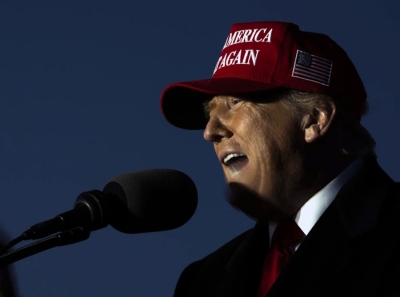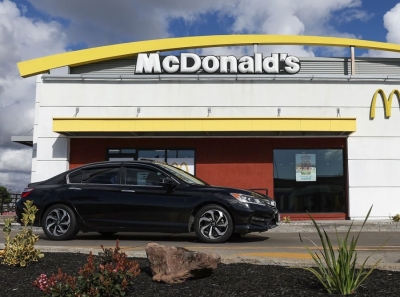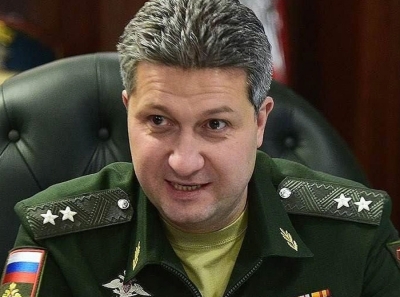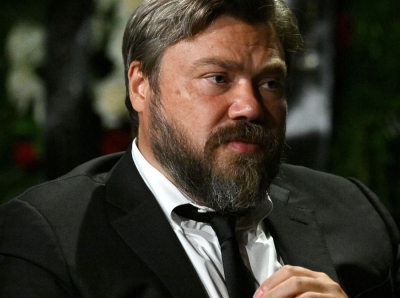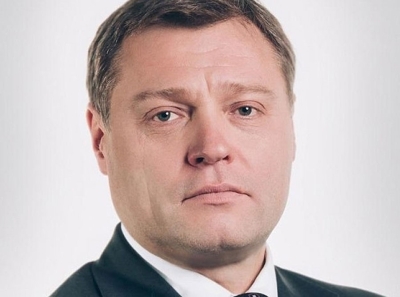Turkey: what will Erdoğan’s third term bring?
Recep Tayyip Erdoğan has begun his third term as President of Turkey. After being sworn in in parliament he presented his new cabinet. In the run-off vote on 28 May, he won with 52.2 percent against opposition leader Kemal Kılıçdaroğlu (47.8 percent). Europe’s press looks with concern at what the result means for the future — in particular for Nato.
Light at the end of the tunnel for Sweden
Turkey will soon give the green light for Sweden to join Nato, Kaleva is convinced:
“Now that Erdoğan has been elected for a new five-year term, he no longer has to present himself to his domestic audience as the strong man who has Nato under his thumb. The fact that he really wants the fighter jets [promised by Biden] will make him more compliant. ... The jets are leverage for putting Erdoğan under pressure. And from 1 June it will also be easy for him to justify his U-turn. A new terrorism law comes into effect on Thursday which will also tighten the stance against the Kurdish PKK.”
Leaving Stockholm in suspense
Wprost, on the other hand, predicts that Sweden will be made to continue waiting for Erdoğan’s approval:
“There are hopes that the process delayed by the Turkish government will accelerate after the elections. ... But one can’t avoid the suspicion that Erdoğan won’t be willing to let the Swedes off the hook so easily. Having once again confirmed his political dominance, the president will no doubt do everything he can to ensure that the ratifying of Nato enlargement to include Sweden becomes a worthy opening for his next term. ... The whole world is expected to watch with bated breath as Erdoğan mulls over who will be allowed to join the world’s most powerful military alliance — and when.”
Unfair conditions
Cumhuriyet doubts the legitimacy of the vote:
“We should really ask whether this can be called an election. As the name suggests, for it to be an ‘election’ the conditions must be equal and people’s will must be free. But it was not like that, we all know that. One side let tanks, guns, ships and planes do the talking. The other side was gagged to prevent it from making a sound. And then this spectacle was called democracy.”
Opposition leader clinging to his post
The opposition web portal T24 is annoyed that the leader of the Nation Alliance refuses to accept responsibility for his defeat:
“Kılıçdaroğlu’s statement immediately after it became clear that he had lost the elections shows that you have to sacrifice certain things to do politics in Turkey. And one of the most sacrifices is a sense of shame. There is no other way to explain that after an electoral defeat he can still say: ‘We will continue our struggle, our march continues and we are here’. Normally, he should have referred to the party congress scheduled for the summer to clear the way for his party. Instead, he made no mention of his responsibility for what lies ahead for Turkey in the next five years.”
Dial up the pressure on Ankara
The Irish Independent points out three immediate consequences of Erdoğan’s re-election:
“One: Turkey will continue to drift away from the West. Two: Its economy will continue to spiral downward. And three: The US foreign-policy establishment will recommend that Washington seek accommodation with Ankara, arguing that this would be better than five more years of acrimony. US president Joe Biden’s administration should follow the logic of the first two certainties to reject the reasoning of the third. Rather than rush to conciliate Erdogan, it should dial up economic and diplomatic pressure until he is ready to reset US-Turkish relations.”
A guarantor of stability between East and West
Europe should see Erdoğan’s re-election as an opportunity for a new start in relations, writes Kurier:
“Erdoğan remains in power even after 20 years. He has done everything to retain it, eliminating unwelcome opponents, abusing the judiciary, bullying the media, muscle-flexing vis-à-vis other countries — the Turkish ‘Pasha’s’ list of sins is long. ... Perhaps the near future will be more relaxed for both sides: after winning the election Erdoğan no longer has to play the tough guy, and Europe can try to start a dialogue with the man on the Bosporus again. Also because it could use him as a guarantor of stability on the border between the Orient and the Occident.”
The promise of stability and an unfair campaign
Political scientist Raul M. Braga Pires identifies two key reasons for the election victory in TSF:
“Twenty years of a political career as prime minister and then as president assure voters of the truth of what many Turks said during the election campaign: ‘A promise made by this man is a promise kept. No one in Turkey can doubt that, he has proven himself. One thing you can say about Erdoğan is that he has never broken his word.’ This and the fact that the entire state apparatus was mobilised for the re-election of candidate Erdoğan were decisive factors in the final result.”
Mass brainwashing
Népszava sees the election as just one more spectacle in a sham democracy:
“The abolition of the free press, the hijacking of the entire media market and its transformation into a servant of power have led to a perfect Potemkin democracy, in which it was possible to pitch Europe’s biggest economic collapse and staggering inflation as a national success. Erdoğan’s election victory is not fraud but the result of lying propaganda and mass brainwashing.”
An unconvincing turnaround
Dnevnik looks at why the change of power in Turkey failed:
“Kılıçdaroğlu did quite well as an emergency candidate in the unequal election campaign. In the end his lack of charisma in the first round probably cost him the victory. In the second round, he had to go all out. He strengthened his anti-refugee stance and abandoned his kindly grandfather image. For only among the nationalist electoral base did he still have voter reserves. But such a radical turnaround in the last 14 days did not convince most voters.”
At least Greece knows what to expect
Writing in Iefimerida, television producer and political analyst Yannis Koutsomitis looks at what Erdoğan’s continued presidency means for Greece:
“The elections in Turkey were neither free nor fair. ... Nevertheless Greece and the West in general are forced to engage with Erdoğan. We will never know whether Turkey would have restored the rule of law and its relations with the West with Kemal Kılıçdaroğlu as president, or whether the Turkish people have missed an opportunity for a better and more democratic future. But history is not written with the words word ‘if’ and ‘whether’, and we here in Greece may well be better off dealing with the devil we know.”
This will be his last term
Erdoğan’s time may soon be up despite his winning the election, writes Russian opposition politician Lev Shlosberg in a Telegram post republished by Echo:
“Kılıçdaroğlu’s result commands respect: never before has an opposition presidential candidate in Turkey come so close to success. ... This is likely to be Erdoğan’s last term. Turkish society will change, gradually part of it will grow tired of this long stubborn rule and demand a new leader. Whether this will be Kılıçdaroğlu is impossible to say now. But it is very likely that time will bring forth a younger politician capable of returning Turkey to Atatürk’s ideals.”
A loose cannon in the defence alliance
Jylllands-Posten is seriously concerned about Turkey’s role in Nato:
“A strengthened Erdoğan may become radicalised. There is no guarantee that Sweden will get a gracious nod from him so it can join Nato at the summit in six week’s time. And it is by no means certain that Erdoğan will abandon his fence-sitting between the West and Russia. ... Nato can consider itself lucky if there is no major debate about whether Turkey should not be thrown out of the alliance after Erdoğan’s constant backstabbing of his partners. Turkey’s location on the edge of the Middle Eastern powder keg is too strategically important for that to be a serious option. But if the truth be told, Erdoğan has led Turkey out of the community of values that Nato also represents.”
